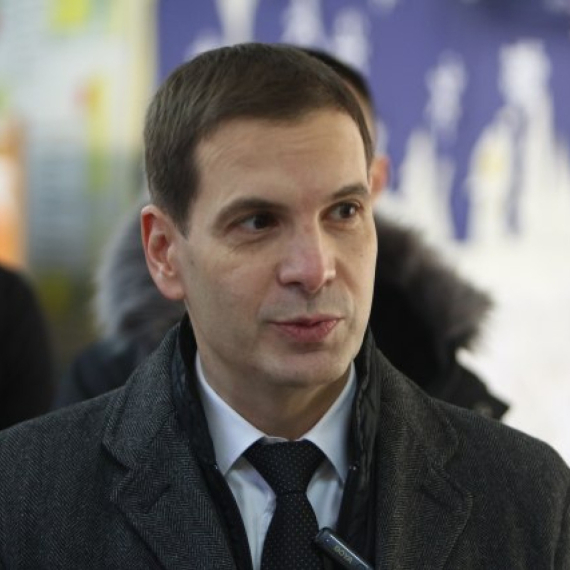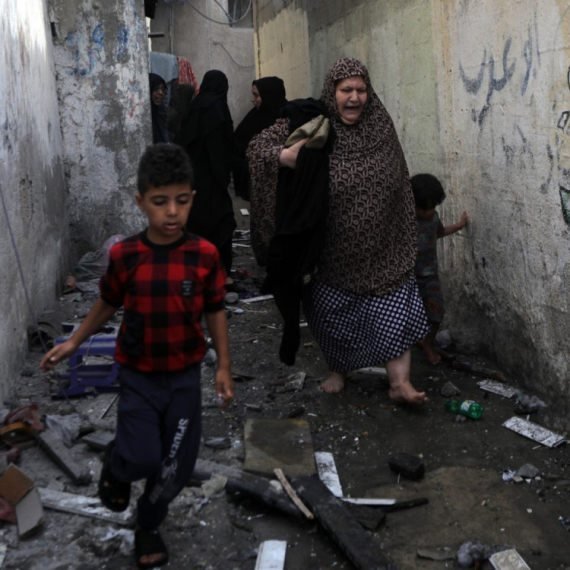"Situation stable, potential for violence in north"
KFOR Commander General Erhard Buehler stated on Wednesday that the general situation in Kosovo is stable.
Thursday, 10.03.2011.
17:19

KFOR Commander General Erhard Buehler stated on Wednesday that the general situation in Kosovo is stable. The likelihood of any major disruptions taking place is very low, he said, but added that northern Kosovo has a potential for violence and crime. "Situation stable, potential for violence in north" The security situation in northern Kosovo is somewhat different, Buehler said of the Serb-dominated area, and explained that although a great majority of people in this region are law-abiding citizens who wish to live in peace and safety, the potential for violence and crime is still present due to certain radical currents and criminals. According to a release issued by KFOR, Buehler informed ambassadors of the countries supporting the mission that despite the new structure enforced on March 1, KFOR is still ready to counter crime in northern Kosovo. General Buehler explained the transformation and the new structure of KFOR forces, pointing out its full readiness, flexibility and operative mobile structures that rest on two multinational combat groups which could be positioned anywhere in Kosovo's territory. Five joint regional units took over regional responsibility. Each of these units is comprised of several liaison and monitoring teams who are in charge of individual municipalities. Their task is to accompany participants in the local political and social life, such as teachers and businessmen, and to communicate with citizens of towns and villages. These teams also represent the liaison units with the Headquarters in case a need for KFOR's intervention arises. According to Buehler, KFOR will continue supporting the development of Kosovo Security Force so that the organization could reach its full operative capacities in 2012. Buehler told the ambassadors that the security situation in Kosovo should be taken into account when making future decisions regarding the size of the corps and their structure. He noted that the feasibility of further transfers of tasks from KFOR to the Kosovo Police Service (KPS) should also be considered, and assessed that KFOR can additionally reduce its presence in Kosovo only after the completion of a task analysis which should be carried out by KFOR, Kosovo institutions, KPS and politicians. Buehler added that he is optimistic about this matter and expressed belief that it can come true, noting that all participants are on the right track.
"Situation stable, potential for violence in north"
The security situation in northern Kosovo is somewhat different, Buehler said of the Serb-dominated area, and explained that although a great majority of people in this region are law-abiding citizens who wish to live in peace and safety, the potential for violence and crime is still present due to certain radical currents and criminals.According to a release issued by KFOR, Buehler informed ambassadors of the countries supporting the mission that despite the new structure enforced on March 1, KFOR is still ready to counter crime in northern Kosovo.
General Buehler explained the transformation and the new structure of KFOR forces, pointing out its full readiness, flexibility and operative mobile structures that rest on two multinational combat groups which could be positioned anywhere in Kosovo's territory.
Five joint regional units took over regional responsibility. Each of these units is comprised of several liaison and monitoring teams who are in charge of individual municipalities. Their task is to accompany participants in the local political and social life, such as teachers and businessmen, and to communicate with citizens of towns and villages. These teams also represent the liaison units with the Headquarters in case a need for KFOR's intervention arises.
According to Buehler, KFOR will continue supporting the development of Kosovo Security Force so that the organization could reach its full operative capacities in 2012.
Buehler told the ambassadors that the security situation in Kosovo should be taken into account when making future decisions regarding the size of the corps and their structure.
He noted that the feasibility of further transfers of tasks from KFOR to the Kosovo Police Service (KPS) should also be considered, and assessed that KFOR can additionally reduce its presence in Kosovo only after the completion of a task analysis which should be carried out by KFOR, Kosovo institutions, KPS and politicians.
Buehler added that he is optimistic about this matter and expressed belief that it can come true, noting that all participants are on the right track.



























































Komentari 7
Pogledaj komentare